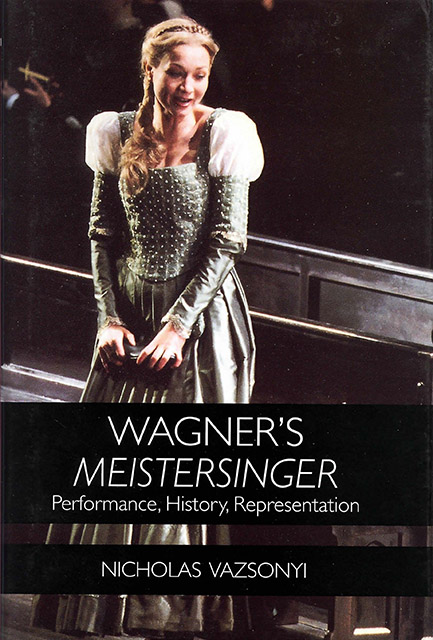10 - “Du warst mein Feind von je”: The Beckmesser Controversy Revisited
Published online by Cambridge University Press: 25 March 2023
Summary
No opera takes us to the dark heart of the matter that we associate with German history more directly than does Die Meistersinger von Nürnberg. Of the many questions posed by that history, the thorniest may well be the role played by high culture, and specifically by music, in the rise of National Socialism. In the immediate aftermath of World War II and long thereafter, most commentators on the “German problem” tended to argue that Adolf Hitler and Nazism marked a complete break with the great cultural achievements of Germany's past. In the last two decades, notably since 1986, when the “Historikerstreit” helped focus the debate about the place of the Holocaust in German history, notions of discontinuity have begun to give way to a growing awareness of fateful continuity. Today, we are prepared to read the emplotment of what Friedrich Meinecke famously termed the “deutsche Katastrophe” in the narrative of German culture quite differently from the essentially exculpatory sense in which that narrative was constructed in the post-war period.
This shift of perspective was by no means as pioneering as it may have seemed at first, for it was anticipated in the debates of the late 1930s, when there began in the United States, in particular among the exiles from Nazi Germany, a painful process of self-examination and a painstaking search for antecedents. In April of 1938, Thomas Mann, the most prominent of the exiles and a dyed-in-the-wool Wagnerian, penned a series of unsparingly selfcritical reflections, some of which he published under the provocative title “Bruder Hitler.” In this essay, Mann courageously views Hitler as a fellow artist in the Wagnerian mold—a chip off the same old block from which Mann traced much of his own artistic lineage. A few years later, in Doctor Faustus, he undertook to unfurl on a grand scale the fateful concatenation of “German” music and German history, suggesting that Germany took the road to barbarism not despite, as the familiar cliché would have it, but rather because of the German idolatry of music.
At about the same time that Mann wrote “Bruder Hitler,” Theodor W. Adorno embarked on his seminal Versuch über Wagner with the aim of mapping the “Urlandschaft,” the primordial topography, of fascism. Shortly thereafter, invoking the example of Mann, the young Harvard historian Peter Viereck sought to identify and expose the “roots of the Nazi mind.”
- Type
- Chapter
- Information
- Wagner's MeistersingerPerformance, History, Representation, pp. 190 - 208Publisher: Boydell & BrewerPrint publication year: 2003
- 16
- Cited by



